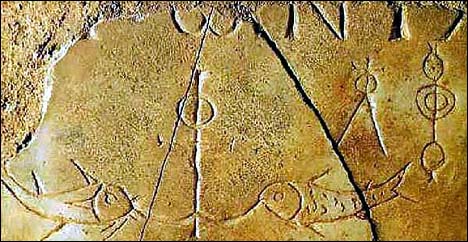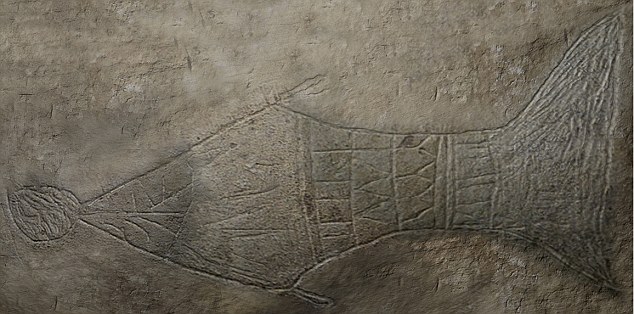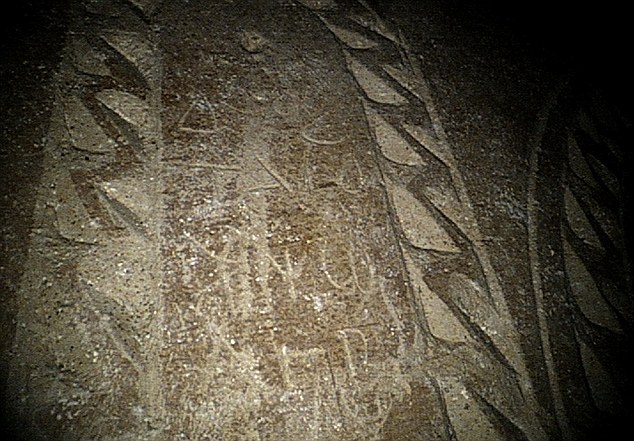Dear P.B.J.,
...1. The Hebrews didn't practice it because Christ's sacrifice was not yet accomplished.
Wrong. 1 Co. 10 makes the OT passover as well pagan dedicatory feasts as analogous to the Lord Supper, that,
The bread which we break, is it not the communion/fellowship of the body of Christ? (1 Corinthians 10:16)
Behold Israel after the flesh: are not they which eat of the sacrifices partakers of the altar? (1 Corinthians 10:18)
But I say, that the things which the Gentiles sacrifice, they sacrifice to devils, and not to God: and I would not that ye should have fellowship with devils. Ye cannot drink the cup of the Lord, and the cup of devils: ye cannot be partakers of the Lord's table, and of the table of devils. (1 Corinthians 10:20-21)
To take part in these sacrificial dedicatory feasts signified fellowship with the other worshipers, and identification with the object to whom the feast was dedicated to. But in no case was the fellowship via physically consuming the flesh and blood of the object of their devotion.
To consume something to take in its life spiritually would bring one down to the animal level, because they just had animals. This is actually explained in the Torah, where it says not to eat blood, because the life is in the blood. Jesus however explicitly explains that you do need to consume his blood because his blood brings life. If you partook of the spiritual life of God, you could become immortal.
No, that is simply reading the Cath interpretation into what the Lord said, and which is foreign to the rest of Scripture.
And as based upon Jn. 6:53, which is an absolute imperative like as other "verily, verily" statements are, then it makes taking part in the Lord's Supper (as a believer in the Cath sense) in order to obtain spiritual life, for "
Verily, verily, I say unto you, Except ye eat the flesh of the Son of man, and drink his blood, ye have no life in you." (John 6:53)
Yet this is nowhere the means of obtaining spiritual life in the rest of the NT, Acts onward, which is interpretive of the gospel, and instead obtaining spiritual life is always by believing the gospel. (Acts 10:43; 15:7-9; Eph. 1:13) And preaching of the word is the only thing that is said to "nourish" souls (1Tim. 4:6) and build them up by, (Acts 20:32) and which the NT presbyteros (which the Holy Spirit
NEVER distinctively titles "priests") fed the flock with, (Acts 20:28) and are described doing.
And in fact any manifest description of the Lord's Supper is missing from all but one epistle to the churches, and 1Co. 11 will be dealt with below.
2. Eating was an essential part of necessary rituals like the Day of Atonement and Passover, during which the sins were taken away.
Actually sins were forgiven prior to that under the rubric of the day of atonement, which itself looked forward to Christ, but sins were not taken away by eating, but which signified fellowship with each other as partakers of the sacrifices to God. Which the NT church shows by looking back to Christ, showing His death for the body by sharing this communal meal with those who were bought by His sinless shed blood. (cf. Acts 20:28)
3. The concept itself is not pagan, since it is in the Torah, but it's banned because they did not want you to drink animal blood.
Obtaining spiritual life by consuming the flesh of the beloved deceased is not in the Torah, or the NT, but is distinctively pagan, as described
here.
Further, the Orthodox and Lutheran traditional view is that this Communion is not a "bloody" feast. Luther explains that we don't drink physical blood.
And you do?
Further, if we consider this a pagan concept only, then we would end up accusing Jesus of relying on pagan concepts, whether or not he used them as symbols.
But it is a distinctively pagan concept, unseen in Scripture and which ignores the abundantly figurative use of eating which the apostles would have been familiar with, and thus you are arguing against your position, as Christ indeed did not rely on pagan concepts.
And even as per Calvinism, some form of partaking of Jesus is inherent in the ritual.
But the devil is in the details of what Catholicism means by this. As the Lord identifies with His body, the church, and is in the midst of even 2 or 3 gathered in His name, then in remembering His death by sharing food with those for whom He died form, then the Lord is nigh in a greater degree.
And it is Roman Catholicism that had to devise a metaphysical explanation to justify her claim:
In Sacred Games: A History of Christian Worship, Bernhard Lang argues that, “When in late antiquity the religious elite of the Roman Empire rethought religion and ritual, the choice was not one between Mithraism and Christianity (as Ernest Renan suggested in the 19th century) but between pagan Neoplatonism and Neoplatonic Christianity.”
“In the third century CE, under the leadership of Plotinus, Plato’s philosophy enjoyed a renaissance that was to continue throughout late antiquity. This school of thought had much in common with Christianity: it believed in one God (the “One”), in the necessity of ritual, and in the saving contact with deities that were distinct from the ineffable
One and stood closer to humanity. Like Judaism and Christianity, it also had its sacred books–the writings of Plato, and, in its later phase, also the Chaldean Oracles. In fact, major early Christian theologians–Origen, Augustine, Pseudo-Dionysus–can at the same time be considered major representatives of the Neoplatonic school of thought.” - (http://www.patheos.com/blogs/cosmostheinlost/2014/04/08/early-churchs-choice-between-neoplatonism)
From a RC monk and defender:
Neoplatonic thought or at least conceptual terms are clearly interwoven with Christian theology long before the 13th century...
The doctrine of transubstantiation completely reverses the usual distinction between being and appearance, where being is held to be unchanging and appearance is constantly changing. Transubstantiation maintains instead that being or substance changes while appearance remains unchanged. Such reversals in the order of things are affronts to reason and require much, not little, to affirm philosophically. Moreover, transubstantiation seem to go far beyond the simple distinction between appearance and reality. It would be one thing if the body and blood of Christ simply appeared to be bread and wine. But I don’t think that is what is claimed with “transubstantiation.”
Aristotle picked up just such common-sense concepts as “what-it-is-to-be-X” and tried to explain rather complex philosophical problems with them. Thus, to take a “common-sense” concept like substance–even if one could maintain that it were somehow purified of Aristotelian provenance—and have it do paradoxical conceptual gymnastics in order to explain transubstantiation seems not to be not so anti-Aristotelian in spirit after all...
That the bread and wine are somehow really the body and blood of Christ is an ancient Christian belief—but using the concept of “substance” to talk about this necessarily involves Greek philosophy (Br. Dennis Beach, OSB, monk of St. John’s Abbey; doctorate in philosophy from Penn State; http://www.praytellblog.com/index.p...iation-and-aristotle-warning-heavy-philosophy)
Edwin Hatch:
...it is among the Gnostics that there appears for the first time an attempt to realize the change of the elements to the material body and blood of Christ. The fact that they were so regarded is found in Justin Martyr. But at the same time, that the change was not vividly realized, is proved by the fact that, instead of being regarded as too awful for men to touch, the elements were taken by the communicants to their homes and carried about with them on their travels. (Hatch, Edwin, 1835-1889, "The influence of Greek ideas and usages upon the Christian church;" pp. 308-09 https://archive.org/stream/influenceofgreek00hatc/influenceofgreek00hatc_djvu.txt)
4. To object that a concept appears pagan would be to repeat the kind of claims that Christianity is "pagan", that the Torah considers it impossible for God to be a "man", that having multiple divine beings (eg. a Trinity) is pagan, etc.
But which
copycat claims are specious, while spiritual life in oneself is
always obtained by believing the word of God of the gospel.
In any case, at this point, I wish to please ask you to move on to Question #3. (
http://www.christianforums.com/thre...of-christianity.7929431/page-10#post-69202770)
In the third question, I'd like to focus on how the Reformed position on the Eucharist and on relics leads away from Biblical Christianity, particularly how:
The Evangelical website "Credo House" says that disciples who rejected the plain meaning of Jesus' words on eating his flesh left Jesus, and that Jesus didn't call them back and give a symbolic meaning, even though the gospels say Jesus explained all his parables' symbolism to the disciples.
As your premise is false so is your conclusion. The Lord did not explain all things, such as "destroy this temple and in 3 days i will raise it up," but left those misunderstanding it who did not hunger for truth, even if it mean it being used against the Lord later.
And "disciples" means a learner, and does not necessarily denote a believer, which is to whom the Lord privately explained things, while those who departed in Jn. 6 did not wait for the fuller explanation, as did true seekers.
For as the Lord said
"As the living Father hath sent me, and I live by the Father: so he that eateth me, even he shall live by me,". (John 6:57) and the Lord said man lives by every word of God, (Mt. 4:4) and His "meat" was to do the Father's will/obey His word, (Jn. 4:24) so also He explained that His flesh - which the carnal hearers assumed was the body the Lord was in - would ascend up above, but that His words were spirit, they are life, the word of eternal life. And which John abundant confirms is believing on the Word made flesh, by which one is saved, contrary to physically eating to obtain spiritual life.
And which use of figurative language is also entirely consistent with John:
• In John 1:29, Jesus is called “the Lamb of God, which taketh away the sin of the world” — but he does not have hoofs and literal physical wool.
• In John 2:19 Jesus is the temple of God: “Destroy this temple, and in three days I will raise it up” — but He is not made of literal stone.
• In John 3:14,15, Jesus is the likened to the serpent in the wilderness (Num. 21) who must “be lifted up: That whosoever believeth in him should not perish, but have eternal” (vs. 14, 15) — but He is not made of literal bronze.
• In John 4:14, Jesus provides living water, that “whosoever drinketh of the water that I shall give him shall never thirst; but the water that I shall give him shall be in him a well of water springing up into everlasting life,” — but which was not literally consumed by mouth.
• In John 7:37 Jesus is the One who promises “He that believeth on me, as the scripture hath said, out of his belly shall flow rivers of living water” — but believers were not water fountains, but He spoke ”of the Spirit, which they that believe on him should receive.” (John 7:38)
• In Jn. 9:5 Jesus is “the Light of the world” — but who is not blocked by an umbrella.
• In John 10, Jesus is “the door of the sheep,” and “the good shepherd [who] giveth his life for the sheep”, “that they might have life, and that they might have it more abundantly” vs. 7, 10, 11) — but who again, is not literally an animal with cloven hoofs.
• In John 15, Jesus is the true vine — but who does not physically grow from the ground nor whose fruit is literally physically consumed.
Other examples of the use of figurative language for eating and drinking include when David distinctly said drinking water was the blood of men, and thus would not drink it, but poured it out on the ground as an offering to the Lord, as it is forbidden to drink blood:
And the three mighty men brake through the host of the Philistines, and drew water out of the well of Bethlehem, that was by the gate, and took it, and brought it to David: nevertheless he would not drink thereof, but poured it out unto the Lord. And he said, Be it far from me, O Lord, that I should do this: is not this the blood of the men that went in jeopardy of their lives? therefore he would not drink it. (2 Samuel 23:16-17)
To be consistent with their plain-language hermeneutic Caths invoke then they should also insist this was literal. As well as when God clearly states that the Canaanites were “bread:
• “Only rebel not ye against the LORD, neither fear ye the people of the land; for they are bread for us” (Num. 14:9),
Other examples:
• The Promised Land was “a land that eateth up the inhabitants thereof.” (Num. 13:32)
• David said that his enemies came to “eat up my flesh.” (Ps. 27:2)
• And complained that workers of iniquity ”eat up my people as they eat bread , and call not upon the Lord.” (Psalms 14:4)
• And the Lord also said, “I will consume man and beast; I will consume the fowls of the heaven, and the fishes of the sea, and the stumblingblocks with the wicked; and I will cut off man from off the land, saith the Lord.” (Zephaniah 1:3)
• While even arrows can drink: “I will make mine arrows drunk with blood, and my sword shall devour flesh ; and that with the blood of the slain and of the captives, from the beginning of revenges upon the enemy.' (Deuteronomy 32:42)
• But David says the word of God (the Law) was “sweeter also than honey and the honeycomb. (Psalms 19:10)
• Another psalmist also declared the word as “sweet:” “How sweet are thy words unto my taste! yea, sweeter than honey to my mouth!” (Psalms 119:103)
• Jeremiah likewise proclaimed, “Your words were found. and I ate them. and your word was to me the joy and rejoicing of my heart” (Jer. 15:16)
• Ezekiel was told to eat the words, “open thy mouth, and eat that I give thee...” “eat that thou findest; eat this scroll, and go, speak to the house of Israel.” (Ezek. 2:8; 3:1)
• John is also commanded, “Take the scroll ... Take it and eat it.” (Rev. 10:8-9 )
Therefore the metaphorical use of language for eating and drinking is well established, and which the apostles would have been familiar with, and would have understood the Lord's words by, versus as a radical new requirement that contradicted Scripture, and required a metaphysical explanation to justify.
Paul wrote twice in 1 Cor. 10 and 11, asking the Corinthians to "discern" that the ritual bread is Christ's body, and warned them intensely against failing to do so.
Which is another argument against you, as the context here is that of recognizing the church as the body of Christ in remembering the Lord's death for it, "which he hath purchased with his own blood," (Acts 20:28) for Paul reproves the Corinthian church for not actually coming together to eat the Lord's supper, because they were eating what is supposed to be a communal meal, the “feast of charity,” (Jude 1:12) independently of each other, so that “in eating every one taketh before other his own supper: and one is hungry, and another is drunken,” and thus what they were doing was to “shame them that have not.” (1Co. 11:20-22)
Therefore Paul proceeds to reiterates the words of Christ at the institution of the Lord's supper, ending with “For as often as ye eat this bread, and drink this cup, ye do shew [kataggellō=preach/declare] the Lord's death till he come.” (1 Corinthians 11:23-26)
For while they were supposed to be showing/declaring the Lord's unselfish sacrificial death for the body by unselfishly sharing food with other members of the body of Christ, whom Christ purchased it with His own sinless shed blood, (Acts 20:28) instead they were both eating independently and selfishly. And thus were effectively treating other members as lepers, as if others were not part of the body for whom Christ died. Therefore they were eating this bread and drinking the cup of the Lord unworthily, hypocritically, because they were presuming to show the Lord's death for the body while acting contrary to it. And thus some were chastised for it, some unto death, (1Co. 11:27-32)
This lack of effectual recognition is what is being referred to as “not discerning the Lord's body,” not that of the nature of the elements consumed. Because this was the case and cause of condemnation, then the apostle's solution was, “Wherefore, my brethren, when ye come together to eat, tarry one for another. And if any man hunger, let him eat at home; that ye come not together unto condemnation. And the rest will I set in order when I come.” (1 Corinthians 11:33-34)
The context of the next chapter is also that of the church.
The Reformed position takes extreme cynicism that saints' presence, bones, clothes, or other items could be involved in miracle working, yet this attitude would normally discount the numerous Biblical instances of them.
The cynicism toward these as well as holy cloths peddled by certain prosperity preachers (and come Cath. ministries) is well warranted. And as with other things i said, you seem to have ignored what i said on this. Thus i am not going to repeat myself again.




